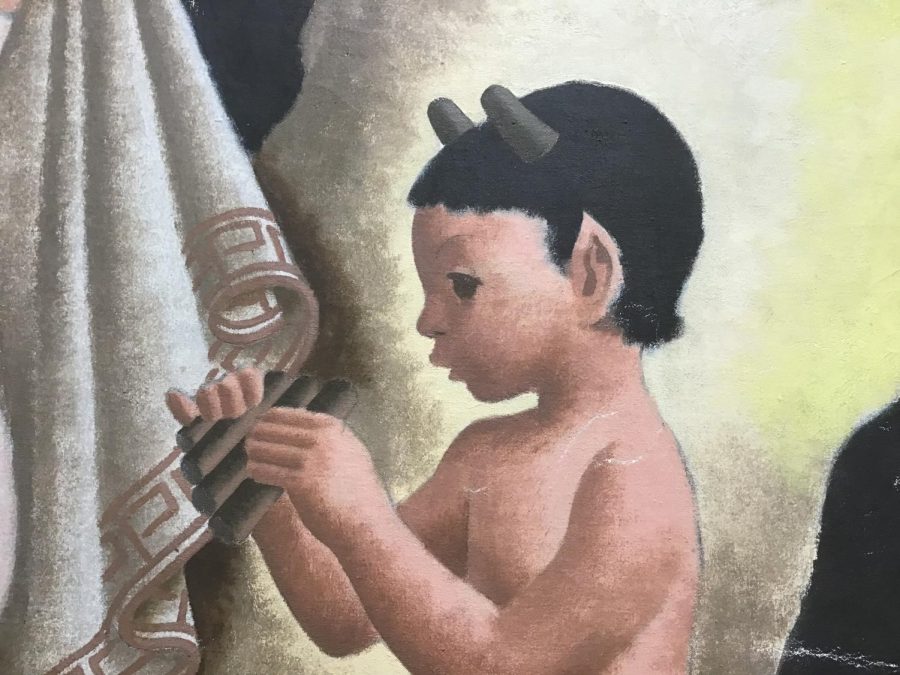Ethos + Pathos = Logos
The work behind New Trier’s literary magazine
Logos website
Picture depicting portion of Edwin Boyd Johnson’s Mural on Music, currently displayed on the second floor of New Trier. Frequently used on Logos website.
New Trier has had a literary magazine since its founding in 1901, publishing students’ poetry, writing, and literary work. Now in 2022, the literary magazine, known as Logos, still introduces student work to the student body.
Although Logo’s mission remains the same, new club members, sponsors, and submitted work in recent years have made Logos stand out for the better.
Every year as students submit their works, Logos members read through the pieces, review them together, and decide on improvements or edits that need to be made in order to publish.
During the editing process, the club members review each literary piece with three questions in mind.
“Our class asks: Is it true? Is it kind? And, is it necessary?” says Editor in Chief Daria Volkova.
Because Logos is a magazine geared towards students, Logos Sponsor Paul Easton wants students to take risks and share their work with other people.
“In one capacity, we’re an audience for writers. Even if [students] choose not to publish their work, they can bounce things off other students, so it’s a place for students to submit their work,” says Easton. “But it’s also a place where we create new audiences. We publish students’ writing, so in that form we bring the publications into the spotlight.”
According to Co-editor Anwyn Li, no form of literature is turned away. Logos welcomes any type of work, from poetry to short stories, and even classroom assignments or song lyrics. “We’ve even gotten stream-of-consciousness novels,” says Li.
Club member Maya Echambadi believes that Logos has a supportive environment for both club members and students submitting their work.
“Instead of rejecting things, we try to improve upon the writing and so in that way Logos functions as a writing center where you can be with supportive people and get revisions,” says Echambadi.
While Logos is primarily a club, the work being done by club members is similar to an English class. Li sees this as an attraction to the club, not a hindrance.
“If you like participating in English class discussions, you will definitely like participating in Logos. We give each entry a thorough read through and approach it as writers, as readers, and also as fellow students. So if you’re in Great Books, you’d love Logos” says Li.
The club meets every Tuesday from 3:30-4:30 in room W231 and welcomes every student regardless of age group.
If you’re interested in submitting your own work or viewing published work, Logos has its own website.







































